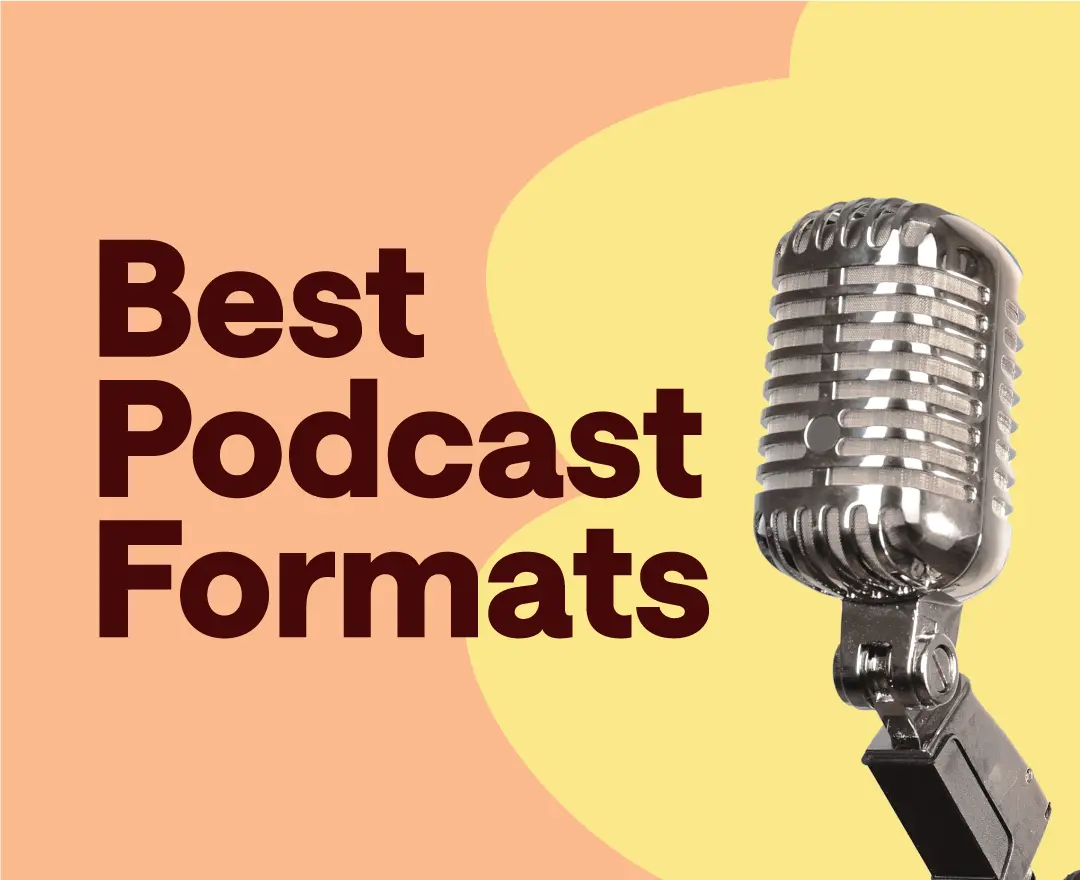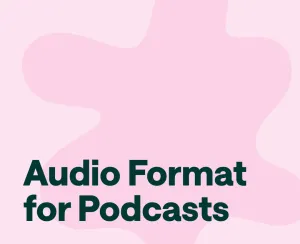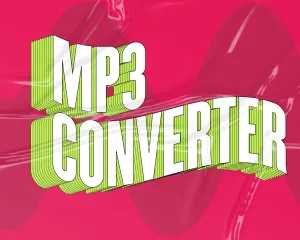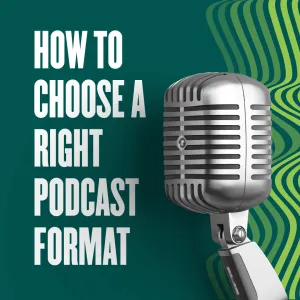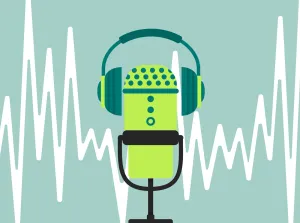The launch of a podcast is a fantastic (and possibly lucrative) opportunity to foster a community around your passions. The crucial first step? Selecting the right format. Each podcast format comes with its own set of advantages and drawbacks, necessitating a careful examination of options. Whether you're leaning toward a one-person show, guest interviews, conversations, or educational content, your choice will significantly impact audience engagement and influence your overarching goals.
Your podcast format not only shapes the audience's experience but also dictates the planning and structure of your content. Many successful podcasts adhere to a consistent format throughout their shows, providing listeners with a roadmap for what to expect in each episode. This continuity not only aids audience retention but also streamlines your production process, making it easier to schedule invitations, plan topics, and maintain a manageable workload.
Podcast Genre Vs. Podcast Format
A podcast genre refers to the category or type of content that a podcast falls under. It’s a way to classify podcasts based on their subject matter. Examples of podcast genres include comedy, news and politics, health, true crime, and sports. The genre of a podcast helps listeners to find the type of content they are interested in and allows podcast creators to target their content to a specific audience.
On the other hand, a podcast’s format refers to the structure or method of delivery of the podcast’s content. It’s how the content is presented to the listeners. Examples of podcast formats include the interview format (where one or more hosts interview guests), the solo or monologue format (where a single host calls the shots), the panel format (where a group of people discuss a topic), and others.
It's important to note that your podcast's format and genre are not mutually exclusive; rather, they are partners in shaping the overall listening experience. Picture genre as the podcast’s flavor, and format as the podcast’s recipe. Understanding and optimizing this dynamic duo is key to creating a podcast that captivates your audience. The format can enhance or detract from the essence of your chosen genre. Some genres thrive in specific formats, while others may find themselves swimming against the current.
In the upcoming sections, we will delve into the most popular podcast formats – from narrative storytelling and interviews to roundtable discussions and solo commentary. Each format has its unique strengths, and the success of your podcast often hinges on aligning it with a compatible genre. We'll guide you through the pairing of genres with these formats, providing inspirational examples of successful podcasts that have masterfully married genre and format.
The 7 Most Popular Podcast Formats
Let's take a look at some of the most popular podcast formats currently around.
1. The Interview Podcast
This format typically involves a host conversing with a guest or multiple guests, fostering insightful discussions that unfold organically. The charm of the interview format lies in its ability to bring diverse perspectives to the forefront, creating a dynamic listening experience that mirrors genuine conversations.
Best Genres For Interview Podcasts
Biography and Personal Journeys: The interview format shines when delving into the life stories and personal journeys of individuals. The conversational nature allows for a deep exploration of experiences, providing listeners with an intimate glimpse into the lives of others.
Business and Entrepreneurship: In the business realm, the interview format excels at extracting valuable insights from successful entrepreneurs and industry leaders. This format allows hosts to ask probing questions, offering audiences a behind-the-scenes look at the strategies and challenges within the business world.
Health and Wellness: Interviews prove effective in the health and wellness genre, enabling hosts to discuss various topics with experts, professionals, and individuals who have navigated personal health journeys. The conversational flow facilitates the exploration of nuanced health-related subjects.
Popular Interview Podcasts
Armchair Expert with Dax Shepard: Dax Shepard's podcast exemplifies the interview format by bringing in a diverse array of guests, ranging from fellow celebrities to experts in various fields. The casual and open conversations allow for deep dives into personal stories, creating a relatable and engaging listening experience.
The TED Interview: The TED Interview, hosted by TED's curator, Chris Anderson, extends the renowned TED Talks into a conversational format. Anderson interviews thought leaders, providing listeners with a more in-depth exploration of the ideas presented in TED Talks, fostering a deeper understanding of the topics discussed.
The Griefcast: The Griefcast takes the interview format to a poignant realm, where host Cariad Lloyd engages with guests about their experiences with grief. The format allows for heartfelt conversations, making it a compassionate and insightful resource for those navigating loss.
2. The Single-Host Podcast
As the name suggests, this format features a lone host steering the ship, delivering content, and engaging with the audience sans the traditional back-and-forth of interviews. The single-host format allows for a more intimate connection, as listeners often feel like they're having a one-on-one conversation with the host.
Best Genres For Single-Host Podcasts
How-To: The single-host format excels in instructional podcasts, where a host can carefully share information, insights, and tips without interruption. This direct communication style is effective in delivering clear, focused content for educational purposes.
Personal Development and Self-Help: Genres centered around personal growth and self-reflection benefit from the single-host format, as it provides a platform for hosts to share personal experiences, reflections, and advice in a conversational manner. This format often fosters a sense of connection and relatability.
History: The single-host format proves to be a compelling choice for history podcasts, allowing hosts to take listeners on a solo journey through the annals of time. This format enables a host to present historical narratives with a cohesive and engaging storytelling style, bringing history to life for eager audiences.
Popular Single-Host Podcasts
The Creative Penn Podcast for Writers: Hosted by Joanna Penn, this podcast embraces the single-host format to guide aspiring writers through the intricacies of the writing and publishing world. Penn shares her knowledge and experiences, and interviews experts in the field, creating a valuable resource for writers on their creative journey.
Flash Forward: Rose Eveleth hosts this single-host format podcast, exploring speculative scenarios about the future. Eveleth skillfully combines storytelling, interviews, and sound design to paint vivid pictures of potential futures, making complex concepts accessible and engaging for listeners.
The Lazy Genius Podcast: Kendra Adachi takes the lead in this single-host format podcast, where she shares practical advice and strategies for simplifying various aspects of life. The format allows for a conversational and approachable tone, making it easy for listeners to incorporate the lazy genius principles into their daily routines.
3. The Co-Hosted Podcast
Unlike the solitary nature of single-host shows, the co-host format involves two or more hosts collaborating to present content. This format thrives on the synergy and banter between hosts, providing listeners with varied perspectives and a lively conversational dynamic.
Best Genres For Co-Hosted Podcasts
Comedy and Entertainment: The co-host format is a natural fit for comedy and entertainment podcasts, leveraging the chemistry and comedic timing between hosts. The interplay of personalities enhances the humor and creates an enjoyable listening experience for audiences seeking laughter and light-hearted banter.
True Crime: In the true crime genre, the co-host format excels at fostering in-depth discussions, speculations, and analyses between hosts. The presence of multiple perspectives allows for comprehensive coverage of cases, making the storytelling more engaging and thought-provoking for true crime enthusiasts.
News and Current Affairs: Co-hosted podcasts are particularly effective in the news and current affairs genre, where hosts can engage in lively discussions and debates. The exchange of opinions and analyses between co-hosts adds depth to the coverage, making it a compelling choice for listeners seeking well-rounded perspectives on current events.
Popular Co-Hosted Podcasts
Crime Junkie: Hosted by Ashley Flowers and Brit Prawat, Crime Junkie embodies the co-host format within the true crime genre. The duo's chemistry and investigative approach create a captivating narrative, exploring infamous cases and mysteries, and drawing listeners into the world of crime.
Morbid: Alaina Urquhart and Ashleigh Kelley co-host Morbid, infusing the true crime genre with a combination of storytelling, humor, and empathy. The co-host format allows for a balanced exploration of dark and compelling narratives, making Morbid a favorite among true crime aficionados.
Stuff You Should Know: With hosts Josh Clark and Chuck Bryant, Stuff You Should Know illustrates the flexibility of the co-host format. The duo explores a wide array of topics, combining research and banter to present informative and entertaining content on everything from historical events to quirky facts.
4. The Narrative Podcast
The narrative format in podcasting is akin to an auditory storytelling experience, where a carefully constructed narrative unfolds, often with a mix of scripted content, interviews, and sound design. This format allows creators to immerse listeners in a captivating story, combining elements of journalism, documentary, and creative storytelling to create a rich and engaging experience.
Best Genres For Narrative Podcasts
True Crime: The narrative format finds its stride in the true crime genre by weaving intricate and suspenseful storytelling. This format enables podcasters to delve into the details of criminal cases, building suspense and emotional connection, making true crime narratives especially gripping for listeners.
Science and Exploration: The narrative format is an ideal vessel for the realms of science and exploration, allowing hosts to embark on intellectual journeys through captivating storytelling techniques. By seamlessly blending narrative elements with scientific inquiry, this format transforms complex concepts into engaging narratives, making science and exploration podcasts both accessible and enthralling for curious minds.
Personal Stories and Memoirs: The narrative format is tailor-made for personal stories and memoirs, providing a platform for hosts to share intimate and emotional narratives. This format allows for a nuanced exploration of personal experiences, fostering a connection between the host and the audience through the art of storytelling.
Popular Narrative Podcasts
This American Life: Hosted by Ira Glass, This American Life is a quintessential example of the narrative format. Each episode presents a collection of stories, often centered around a central theme, combining journalistic elements with personal narratives to create a rich tapestry of human experiences.
The Moth: The Moth features real people telling their own stories live on stage, embodying the power of personal storytelling within the narrative format. With minimal editing, this podcast captures the authenticity and raw emotions of personal narratives, creating a unique and impactful listening experience.
Radiolab: Radiolab, hosted by Lulu Miller and Latif Nasser, seamlessly blends storytelling with investigative journalism and sound design. This narrative format podcast explores complex scientific and philosophical topics, making them accessible and engaging through compelling storytelling techniques and expertly crafted narratives.
5. The Fiction or Theatre Podcast
For fiction enthusiasts, the podcast theatre format offers a unique storytelling experience. These shows transform audio into a stage, where scripted narratives, sound effects, and voice acting come together to create immersive audio dramas. The fiction format allows for the exploration of limitless worlds and characters, providing a unique auditory experience for listeners.
Best Genres For Fiction Podcasts
Science Fiction and Fantasy: The fiction or podcast theater format thrives in the realms of science fiction and fantasy, offering a canvas for creators to paint vivid worlds and epic adventures through immersive soundscapes. This format allows listeners to be transported to fantastical realms, enhancing the storytelling experience with imaginative elements.
Mystery and Horror: For mystery and thriller genres, the podcast theater format becomes a powerful tool to build suspense and tension. The combination of atmospheric sound design and compelling narratives heightens the thrill, creating an engaging audio experience that keeps listeners on the edge of their seats.
Comedy: Comedy podcasts flourish in the fiction or podcast theater format by utilizing scripted humor, witty dialogue, and creative storytelling. The incorporation of comedic timing, sound effects, and character interactions enhances the comedic elements, providing a unique and entertaining experience for listeners.
Popular Fiction Podcasts
Welcome to Night Vale: Welcome to Night Vale epitomizes the fiction or podcast theater format within the realm of surreal and supernatural fiction. Presented as a community radio show from the fictional town of Night Vale, this podcast combines humor, horror, and imaginative storytelling to create a captivating and otherworldly experience.
Limetown: Limetown utilizes the podcast theater format to weave a gripping mystery thriller. Through a blend of pretend investigative journalism and dramatic storytelling, this podcast follows the mysterious disappearance of an entire town's population, immersing listeners in a suspenseful narrative with a cinematic feel.
The Adventure Zone: The Adventure Zone showcases the fiction format in the realm of comedic storytelling. Hosted by the McElroy brothers and their father, this podcast transforms tabletop role-playing into a hilarious and imaginative audio adventure, combining storytelling, humor, and collaborative role-playing for an entertaining and immersive experience.
6. Educational Podcasts
This format is dedicated to presenting information, insights, and valuable lessons in a structured and engaging manner. Whether delving into self-improvement, industry-specific knowledge, or general learning, the educational format aims to empower listeners with valuable takeaways.
Best Genres For Educational Podcasts
Self-Improvement and Personal Development: The educational format shines brightly in the realm of self-improvement, providing a platform for hosts to share actionable advice, motivational insights, and personal growth strategies. This format's structured approach lends itself well to delivering valuable lessons for listeners on their journey of self-discovery.
Business and Entrepreneurship: For business enthusiasts and aspiring entrepreneurs, the educational format proves highly effective. It allows hosts to delve into industry trends, share success stories, and provide practical tips and strategies. The educational structure ensures that listeners can absorb valuable business knowledge in a comprehensible and organized manner.
Technology and Science: In the fast-evolving fields of technology and science, the educational format excels at breaking down complex concepts and discoveries. Hosts can present information in a systematic way, making it accessible to a broad audience. This format serves as an invaluable resource for those eager to stay informed about the latest advancements in technology and science.
Popular Educational Podcasts
The Mel Robbins Podcast: The Mel Robbins Podcast exemplifies the educational format, particularly in the realm of self-improvement. Mel Robbins shares practical advice, actionable strategies, and insightful interviews to empower listeners to make positive changes in their lives, fostering personal development and growth.
anything goes with emma chamberlain: Emma Chamberlain utilizes the educational format in her podcast to explore a variety of topics, from mental health to lifestyle choices. The podcast's conversational yet informative style provides listeners with a blend of entertainment and education, making it an engaging platform for diverse discussions.
Do The Work: Do The Work, hosted by Brandon Lilly and Ashley Lilly, embraces the educational format within the fitness and wellness genre. The podcast provides practical insights into health, fitness, and mindset, offering listeners a structured approach to improving their well-being through education and actionable advice.
7. Video Podcasts
The video podcast format, more of a sub-format, enriches the traditional audio experience by introducing a visual component. While any podcast format can adopt video elements, the video podcast format stands out by providing a dynamic and multifaceted experience. This format leverages the power of visuals to complement and enhance the content, adding an extra layer of engagement for viewers.
Best Genres For Video Podcasts
Comedy and Entertainment: The video podcast format is particularly effective in the realm of comedy and entertainment, as it allows hosts to showcase facial expressions, reactions, and visual gags. The inclusion of video elements enhances the comedic timing and fosters a deeper connection between hosts and viewers.
Society & Culture: For podcasts centered around interviews and conversations, the video format offers an extra dimension by capturing the body language and non-verbal cues of the participants. This adds depth to the viewer's understanding and creates a more immersive experience, especially when the visual dynamics of the conversation are crucial.
Leisure: The video podcast format excels at incorporating visuals like gameplay footage, images, and video clips. This visual richness enhances discussions, analyses, and reactions, creating a more engaging experience for viewers passionate about the gaming and pop culture worlds.
Popular Video Podcasts
The H3 Podcast: Hosted by Ethan and Hila Klein, The H3 Podcast blends comedy, interviews, and discussions in a video podcast format. The video aspect enhances the entertainment value by showcasing the hosts' reactions, expressions, and occasional visual elements, creating a well-rounded viewing experience.
Trash Taste: Trash Taste, hosted by Gigguk, The Anime Man, and CDawgVA, utilizes the video podcast format in the realm of pop culture and conversations. The hosts' interactions and visual elements, including their reactions to fan submissions and challenges, make it an engaging watch for fans of pop culture discussions.
The Joe Rogan Experience: The Joe Rogan Experience, hosted by Joe Rogan, is known for its long-form interviews across various genres. The inclusion of video elements enhances the conversational experience, allowing viewers to see the body language and reactions of both the host and the guests, creating a more immersive and dynamic interview setting.
But Which Podcast Format Is The Best?
The most successful format for any podcast is the one that the genre and subject matter most naturally align with, along with what the host's passion, temperament, and desire make them most suited for. Rather than reverse engineering a podcast format based solely on current popularity trends, hosts should let these other considerations guide them.
However, while there’s no one-size-fits-all formula for podcast success, analyzing the charts of top podcast distributors provides valuable insights. According to distribution charts, the most represented formats, from highest to lowest, are as follows:
The Most Successful Podcast Formats
1) Narrative
2) Interview
3) Educational
4) Fiction
As for the question of host size, the magic number seems to be: one. Pew Research Center's deep dive into the top-ranked podcasts in the U.S. reveals an interesting trend – 58% of them fit the single-host podcast format. This sheds light on the power of a singular voice guiding listeners through a podcast's narrative, educational insights, or engaging conversations. While multi-host formats thrive in various genres, the solo approach remains the more successful way to go.
